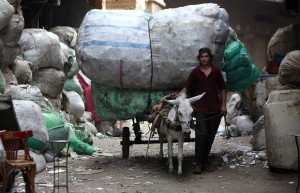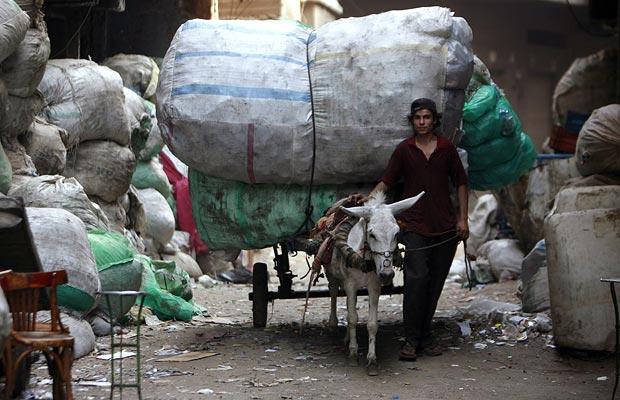
(AFP Photo)
A new report published by the United Nations Development Programme (UNDP) has listed Egypt as one of the leading countries in its efforts to achieving the Millennium Development Goals (MDG) in North Africa. The report analysed the African continent’s progress on the seven MDG goals set forth by the UNDP, which include: efforts to halve the rate of hunger and poverty, achieving universal primary education, reducing child mortality, improving maternal health, combating the spread of HIV/AIDS and other diseases, and ensuring environmental sustainability.
Egypt has accelerated or maintained its rate of progress in 11 of 20 MDG indicators accessed. The report highlighted that Egypt, Tunisia and Liberia lead Africa in the reduction of child mortality rates, having surpassed the target goal of reducing the under-five mortality rate by two-thirds. The report attributed Egypt’s success to a focus on “high-impact interventions, strengthening health systems, investing more in health and its social determinates, enhancing medical technology and improving education, child protection and economic growth”.
Although Africa as a whole has made progress on the matter, Central Africa maintains a high infant mortality rate, with 139 under-five deaths for every 1,000 births.
Egypt also ranks alongside Eritrea as the only two African countries on track to meeting the MDG goal of reducing maternal mortality rates, with Equatorial Guinea being the only African nation to have already achieved the MDG target with an 81% drop in maternal mortality rates since 1990.
Egypt has also made valiant strides in detecting and combating HIV/AIDS, Malaria and a host of other diseases such as Tuberculosis. Egypt detected 64% of Tuberculosis cases, up from 11% in 1990. It still ranks far behind countries such as Tunisia and Morocco, who have detected 90% of cases as of 2010, and outranks Sudan and Sierra Leone, detecting 50 and 32%, respectively.
Since the mid-1980s, the number of African food emergencies tripled, the report said. The UNDP says Africa faces several challenges which has kept it from moving wholly past food insecurity, which include “ineffective regional and global responses, underdeveloped agriculture, a lack of modernisation, poor land structure, chronic poverty and a lack of political focus”.
Overall, Africa’s hunger rates have dropped since 1990, but the UNDP says the situation has not greatly improved. Egypt is currently ranked fourth place by the UNDP, with a hunger index rate of less than five from a scale of 100, behind Libya, Tunisia, Algeria and Morocco.
In terms of poverty, the UNDP has said African nations are not reducing poverty rates fast enough to meet the 2015 MDG target. “Africa’s growth has not been job-rich, and most jobs are vulnerable,” the report said. “Over the past 10 years, Africa’s labour force added 91 million people but only 37 million jobs in wage-paying sectors.”
High levels of income, gender and rural-urban inequalities are also factors which have hampered the bridging of the growth and poverty gap on the continent.
Africa as a whole also struggles to bridge gender inequality, with wage rates remaining universally unequal. The report said women across the continent are becoming more empowered, entering primary and secondary education and holding seats in government.
The UNDP said the average percentage of seats held by women in African national parliaments is nearly 20%, taking its place as one of the highest in the world after Latin America and the Caribbean.
Egypt’s Shura council, by contrast, only has eight out of the 270 seats occupied by women, or 2.9%.

